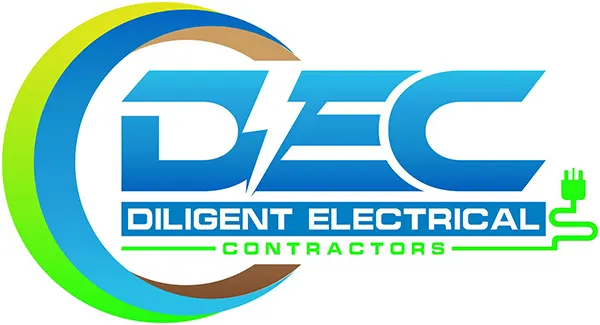An electrician installs, maintains, and repairs electrical systems in homes, businesses, and industrial settings across the UK. They guarantee safety, legal compliance, and the efficient delivery of power.
Responsibilities of an Electrician
Electrical Installation
Electricians install systems such as consumer units (also known as fuse boxes), sockets, switches, lighting circuits, and larger systems, including three-phase installations for commercial use.
- Fuse Box / Consumer Unit – The control centre for electrical circuits within a property.
- Lighting Installation – Includes interior, exterior, and emergency lighting setups.
Electrical Maintenance and Testing
Electricians perform routine checks and inspections to prevent faults and ensure compliance with standards.
- PAT Testing (Portable Appliance Testing) – A method to verify the safety of portable electrical appliances.
- Electrical Installation Condition Report (EICR) – A formal document issued after a detailed inspection.
Fault Finding and Emergency Repairs
If electrical systems fail, electricians diagnose and repair issues such as tripped RCDs, burnt-out wiring, or overloaded circuits.
- Entity: RCD (Residual Current Device) – Protects against electric shocks by breaking the circuit.
- Entity: Circuit Breaker – Prevents overloading and short-circuits.
Types of Electricians and Their Roles
Domestic Electrician
Works in homes, flats, and small residential buildings. Installs standard 230V systems, lighting, sockets, and home automation systems.
Commercial Electrician
Handles complex systems in offices, retail units, and schools. May deal with three-phase power systems, large fuse boards, and structured cabling.
Electrical Contractor vs. Electrician
- Entity: Electrical Contractor – A company or individual licensed to run large electrical projects.
- Entity: Electrician – A certified technician carrying out the work.
Legal and Regulatory Requirements
Compliance with BS 7671
Electricians in London or all over UK are required to follow the BS 7671 Wiring Regulations, which outline the safety standards for electrical installations.
Certification Bodies
To legally carry out electrical work in the UK, electricians must be certified by recognised regulatory bodies. These organisations ensure compliance with safety standards and verify the competence of electrical professionals.
NICEIC (National Inspection Council for Electrical Installation Contracting)
NICEIC is a UK Government-approved body that certifies electricians and electrical contractors. It assesses electricians for competence, insurance, and adherence to BS 7671 (Wiring Regulations). Electricians registered with NICEIC can self-certify work under Building Regulations.
Part P Compliance
Part P is a section of the Building Regulations that applies to domestic electrical work. Electricians working on fixed electrical installations in dwellings must comply with Part P. It ensures electrical safety in homes and mandates that only certified professionals carry out notifiable work.
Tools and Equipment Used
Electricians rely on a set of specialised tools to carry out safe and efficient work. These tools help diagnose faults, measure electrical values, and perform precision installations.
- Multimeter: Measures voltage, current, and resistance in circuits.
- Voltage Tester: Checks if wires or components are live.
- Wire Stripper: Removes insulation from cables for clean connections.
- Conduit Bender: Shapes electrical conduit to fit around structures.
- Insulation Resistance Tester: Measures the effectiveness of insulation in preventing current leakage.
- Circuit Breaker Finder: Identifies the correct breaker for a given circuit.
- RCD Tester: Confirms the proper functioning of Residual Current Devices for safety.
- Loop Impedance Tester: Tests the circuit impedance to ensure an appropriate fault clearance.
All tool plays a crucial role in maintaining safety, accuracy, and compliance on the job.
When Should You Call an Electrician?
There are clear signs and scenarios where the expertise of a qualified electrician is required. Failing to address these situations can lead to hazards or non-compliance with legal requirements.
Call an electrician if:
- Lights flicker, dim, or buzz unexpectedly
- Circuit breakers trip frequently, or RCDs won’t reset
- You smell burning near switches or outlets
- Sockets or switches feel hot to the touch
- You’re planning an extension, renovation, or new build
- You’re buying or selling a home and need an EICR
- You want to install new sockets, lighting, or EV chargers
- Your property has old or exposed wiring
- You’re a landlord needing to meet inspection regulations
Early fault detection protects your property and keeps systems compliant with BS 7671 and Part P.
Final Thoughts on the Role of Electricians
Electricians’ Responsibilities and tasks are essential for the safety and functioning of homes and buildings. From new installations to inspections and emergency repairs, their role is defined by skill, regulation, and responsibility.
